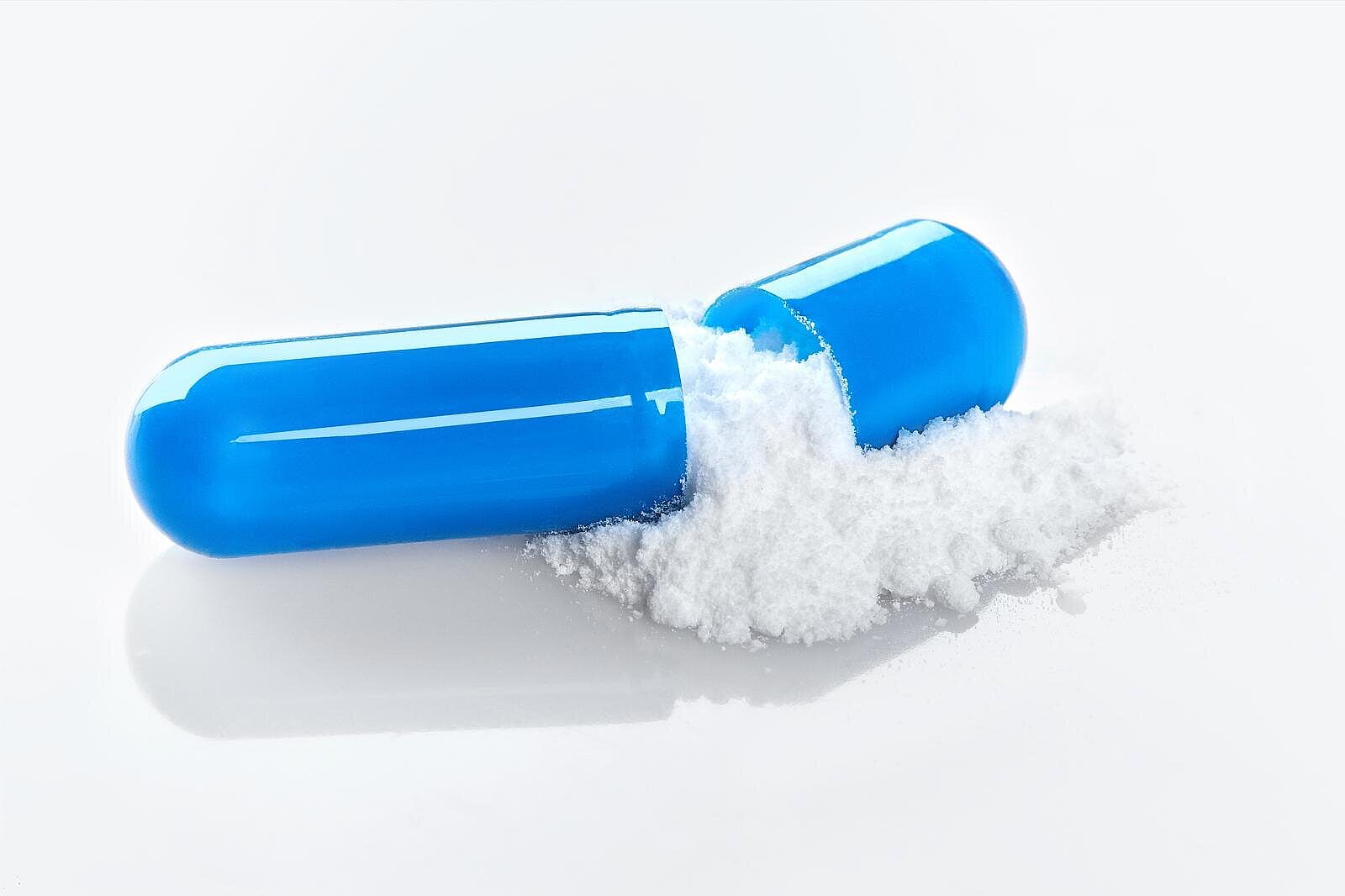Potassium phosphate

In the world of dog food, it is essential to fully understand the ingredients served to our four-legged friends. One of these ingredients that is often overlooked is potassium phosphate. In this article, we dive deep into the world of this mineral to find out what it is, what benefits it offers and what potential drawbacks it could have.
What is potassium phosphate?
Potassium phosphate is a salt composed of potassium and phosphate ions. It is an important component in the diet that fulfills a number of functions in the body of both humans and dogs. In the body, potassium phosphate mainly acts as a buffer that helps to regulate pH levels. It also plays a central role in energy metabolism and is important for bone and teeth health.
Benefits of potassium phosphate for dogs
Support of the energy metabolism
Potassium phosphate is crucial for the conversion of food into energy. It is involved in the synthesis of adenosine triphosphate (ATP), the main source of energy for cells. This makes it an important component for maintaining your dog's vitality and general well-being.
Bone and dental health
Phosphate, together with calcium, plays a key role in the formation and maintenance of bones and teeth. An adequate intake of potassium phosphate can help your dog build and maintain a strong skeleton, which is especially important for growing puppies and older dogs.
Regulation of the acid-base balance
A dog's body needs to maintain a certain pH level in order to function optimally. Potassium phosphate helps to regulate the acid-base balance by acting as a buffer. This is crucial for health and can help prevent various diseases caused by pH imbalance.
Potential disadvantages
Imbalance if overdosed
While potassium phosphate is beneficial in reasonable amounts, an overdose can lead to an imbalance of potassium and phosphorus in the body. This can lead to health problems such as kidney stones, kidney disease and bone problems, especially if your dog has a pre-existing condition that affects the excretion of these minerals.
Interactions with other nutrients
Excess phosphate can interfere with the absorption and utilization of other important minerals such as calcium and magnesium. This can lead to an imbalance of these minerals, which in turn can negatively affect your dog's bone and dental health.
Potassium phosphate is an essential component of a dog's diet, providing significant benefits for energy production, bone and dental health and acid-base balance regulation. However, as with all nutrients, adequate intake is crucial. An overdose can lead to health problems, so it's important to ensure the right balance in your dog's diet.
If you notice any signs of hypersensitivity or poisoning in your dog, you should see your vet immediately. We are not a substitute for a vet, but we try to be as accurate as possible. Every dog reacts differently and we recommend you get a second opinion or consult your vet if in doubt.
Stay healthy and take good care of your four-legged friend!😊
Similar to Potassium phosphate
Monocalcium phosphate has the chemical formula Ca(H2PO4)2. It is formed by the reaction of calcium oxide with phosphoric acid. Monocalcium phosphate is a white, odorless solid that dissolves...
Dipotassium hydrogen phosphate (K2HPO4) is a water-soluble potassium salt of phosphoric acid. It is often used as a fertilizer, in food processing as a stabilizer, emulsifier and buffer as well as...
Sodium dihydrogen phosphate, also known as monosodium phosphate (NaH2PO4), is a salt of phosphoric acid and has many applications in the food industry, medicine and even in dog nutrition. Among...
Trimagnesium phosphate (Mg3(PO4)2) is a chemical compound consisting of magnesium, phosphorus and oxygen. It is an example of a magnesium salt of phosphoric acid and is found in various forms,...



